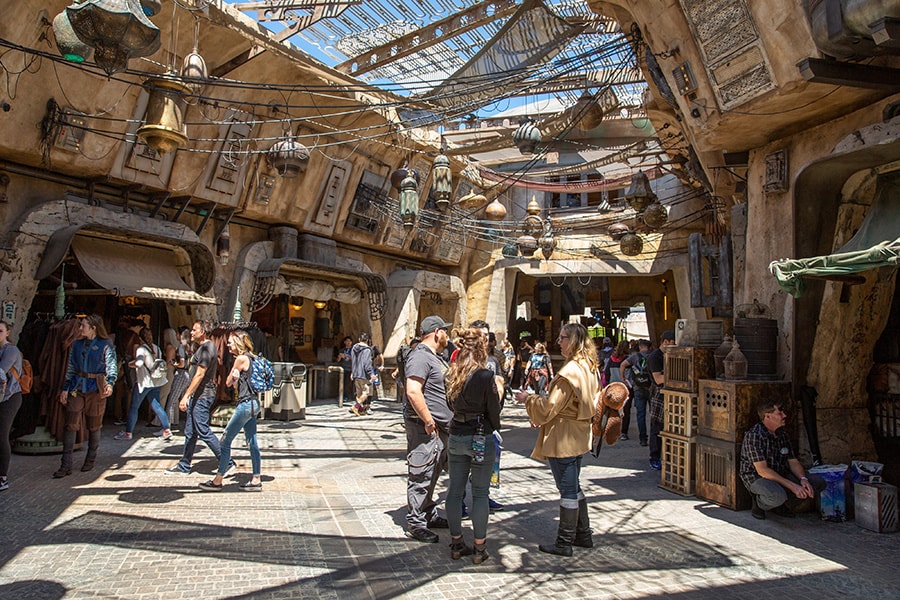
Disney earnings disappoint in first full quarter after Fox deal
In its first full quarter since closing a $71.3 billion deal to acquire most of Rupert Murdoch's Fox entertainment businesses, Disney's profit slid 51 percent from a year earlier, missing Wall Street's revenue expectations by roughly $1 billion
 A shopping bazaar at the new Star Wars: Galaxy’s Edge expansion at Disneyland Park in Anaheim, Calif., May 20, 2019. Disney's 2019 profit was down 51 percent from a year earlier as assets acquired from 21st Century Fox underperformed and losses from streaming mounted. (Beth Coller/The New York Times)
A shopping bazaar at the new Star Wars: Galaxy’s Edge expansion at Disneyland Park in Anaheim, Calif., May 20, 2019. Disney's 2019 profit was down 51 percent from a year earlier as assets acquired from 21st Century Fox underperformed and losses from streaming mounted. (Beth Coller/The New York Times)
The Walt Disney Co. reported weak quarterly results Tuesday, the result of escalating streaming-service losses, underperforming 21st Century Fox assets and lower-than-expected theme park attendance.
In its first full quarter since closing a $71.3 billion deal to acquire most of Rupert Murdoch’s Fox entertainment businesses, Disney had a profit of $1.44 billion, a 51% decline from the comparable period a year earlier. Disney missed Wall Street’s revenue expectations by roughly $1 billion.
Disney shares fell more than 3% in after-hours trading, to around $137.
Robert Iger, Disney’s chief executive, said the difficult quarter was part of a “strategic transformation” underway at Disney, the world’s largest entertainment company. Disney is trying to become less dependent on cable channels like ESPN, which are in decline because of cord-cutting, and move into the rapidly growing realm of online video, a direct-to-consumer business defined by Netflix. Disney bought certain 21st Century Fox assets to enhance its streaming plan, which includes a subscription service called Disney Plus.
Disney Plus is to arrive in November and feature movies and shows from Disney, Pixar, the “Star Wars” franchise, National Geographic and Marvel. Disney also owns the majority of Hulu and the ESPN Plus sports streaming service. Disney said Tuesday that it would offer a $12.99 bundle package of the three services.
Building these streaming platforms is tremendously expensive. Losses in the division that houses streaming totaled $553 million in the quarter, up from $168 million a year earlier, Disney said. The company expects streaming-related operating losses to widen to $900 million in the current quarter.
©2019 New York Times News Service




